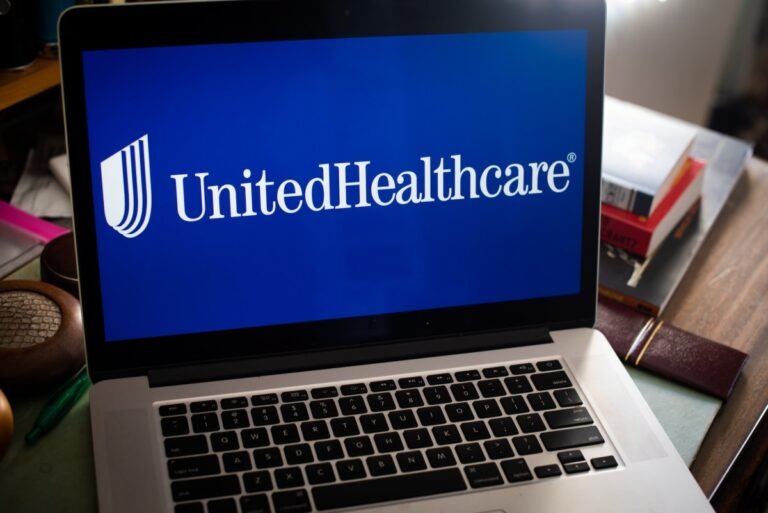
So, your partner could very well have an STI, but Calmara would tell you he’s in the clear.
That’s why actual STI tests use blood and urine samples to detect infection, as opposed to a visual exam.
It does not involve any medical conditions or discussions within its framework, and no medical doctors are involved with the current Calmara experience.
“The clear idea is to initiate a conversation regarding STI status and testing.”Calmara is part of HeHealth, which was founded in 2019.
Calmara and HeHealth use the same AI, which it says is 65-90% accurate.

The Carevoice, an embedded insurance solution provider that started in Shanghai and now has a footprint across 15 countries, has apparently made that math look attractive to investors in the space.
The company just raised $10 million from a Series B financing led by U.K.-based Apis Insurtech Fund I, which contributed to most of the round.
In 2023, U.S.-based digital health startups raised a total of $10.7 billion across 492 deals, the lowest amount since 2019, according to Rock Health, a health tech-focused seed fund.
That funding slowdown also hit The Carevoice, though it weathered the storm by reaching healthy cash flow.
Embedded health solution providers like The Carevoice can find themselves competing with traditional IT and consulting service companies, such as Tata’s TCS.

Withings started previewing its cycle tracking feature in some markets in September 2023 when the ScanWatch 2 launched.
“The menstrual cycle tracking feature was one of the top feature requests of our community.
(Incidentally, it is possible to use temperature tracking as a proxy for cycle tracking, but you have to be very accurate with the measurement).
By integrating menstrual cycle tracking, Withings acknowledges the complex and nuanced nature of health — and adds more features to help track, measure and predict.
The market Withings is going after with its cycle tracking feature is absolutely mind-bogglingly large.

Employee-focused mental health company Journey is acquiring Felt, a startup formerly known as Mine’d that specializes in matching individuals with therapists using artificial intelligence.
Journey, which offers a mental health employee assistance program used by companies like Walgreens and Universal Music Group, says the acquisition aligns with its mission to revolutionize employee well-being and mental health support while leveraging the power of AI.
While Felt’s technology was initially designed for a consumer-facing app, it will be integrated into Journey’s backend product.
Journey CEO and founder Stephen Sokoler told TechCrunch that Felt’s technology will be integrated into the company’s Proactive EAP platform.
The company plans to pair Felt’s AI-based technology with its existing human-enabled therapist pairings in order to better match employees with therapists.

If patient data has been stolen, the ramifications for the affected patients will likely be irreversible and life-lasting.
Change Healthcare is one of the world’s largest facilitators of health and medical data and patient records, handling billions of healthcare transactions annually.
The cybersecurity director expressed alarm at the prospect of the hackers potentially publishing the stolen sensitive patient data online.
For those on the front-lines of healthcare cybersecurity, the worst-case scenario is that stolen patient records become public.
Do you work at Change Healthcare, Optum or UnitedHealth and know more about the cyberattack?

MDaaS Global, a Nigerian health tech company that operates a network of tech-enabled diagnostic centers across the country, has secured $3 million in pre-Series A funding.
The seven-year-old health tech also plans to expand its healthcare network to cover all Nigerian states through a combination of company-owned and affiliate clinics.
Improving access to diagnostics and preventive care, a domain where MDaaS has garnered recognition, is essential in tackling this healthcare challenge.
On the other hand, MDaaS’ care network involves collaboration with over 1,300 referring clinicians across more than 1,000 organizations, including hospitals, pharmacies, health tech startups, corporate partners and 34 HMOs.
Since its inception, MDaaS has provided care to over 275,000 patients, leveraging its integrated care network and BeaconOS capabilities.

American health insurance giant UnitedHealth Group has confirmed a ransomware attack on its health tech subsidiary Change Healthcare, which continues to disrupt hospitals and pharmacies across the United States.
“Based on our ongoing investigation, there’s no indication that except for the Change Healthcare systems, Optum, UnitedHealthcare and UnitedHealth Group systems have been affected by this issue.”In a post on its dark web leak site on Wednesday, ALPHV/BlackCat took credit for the cyberattack at Change Healthcare.
Change Healthcare merged with U.S. healthcare provider Optum in 2022 as part of a $7.8 billion deal under UnitedHealth Group, the largest health insurance provider in the United States.
Change Healthcare said it took much of its systems offline to expel the hackers from its systems.
Do you work at Change Healthcare, Optum or UnitedHealth and know more about the cyberattack?

After a brief tease at the end of its big Galaxy S24 event earlier this month, Samsung officially debuted the Galaxy Ring this morning at MWC.
Circular cofounder and CEO Amaury Kosman stated, “We’re really pleased that Samsung has announced that it will be bringing the Samsung Galaxy Ring to market later this year.
The company isn’t a household name, but it’s big enough to effectively be synonymous with the smart ring category for many consumers.
While the Galaxy Ring appeared on the MWC floor today, we’re still waiting for a lot here with regards to specifics.
Samsung could also lean into sleep tracking, suggesting users wear the Watch all day and sleep with the Ring on.

U.S. healthcare technology giant Change Healthcare has confirmed a cyberattack on its systems.
Most of the login pages for Change Healthcare are inaccessible or offline when TechCrunch checked at the time of writing.
Michigan local newspaper the Huron Daily Tribune is reporting that local pharmacies are experiencing outages due to the Change Healthcare cyberattack.
Change Healthcare is one of the largest healthcare technology companies in the United States.
Both Optum and Change Healthcare are owned by health insurance giant UnitedHealth Group.

Food tech investment may have declined along with overall venture capital, but Bluestein Ventures is not letting that slow it down.
The Chicago-based early-stage venture capital firm closed on $45 million in capital commitments for its Fund III.
Andrew Bluestein, co-managing partner of Bluestein Ventures, founded the firm in 2014 and brought on Ashley Hartman, also co-managing partner, eight years ago.
They join other venture capital firms, like Kost Capital, Supply Change Capital and Joyful Ventures, that have recently raised new funds to invest in food tech.
“When we started Bluestein Ventures, people would ask us why we were investing in food,” Bluestein told TechCrunch.













